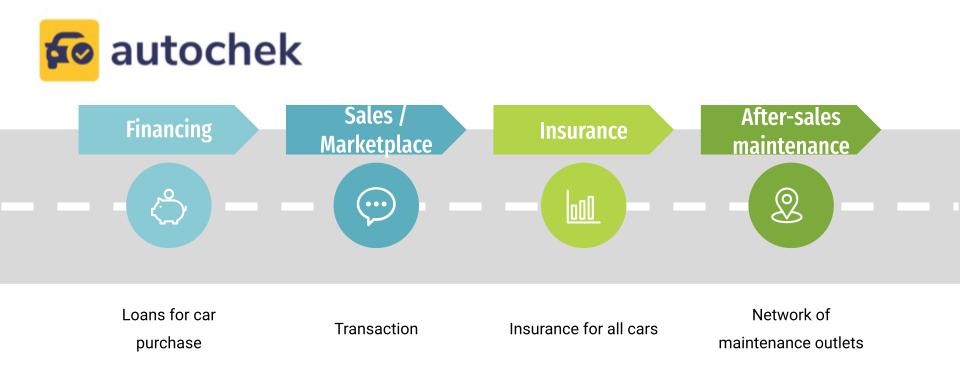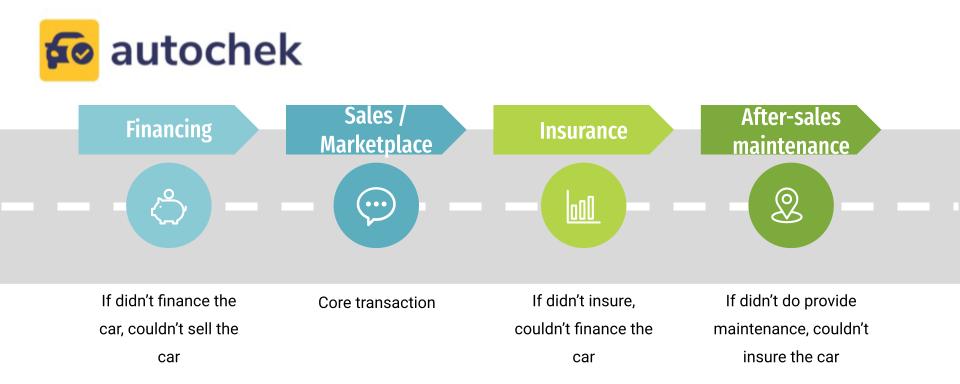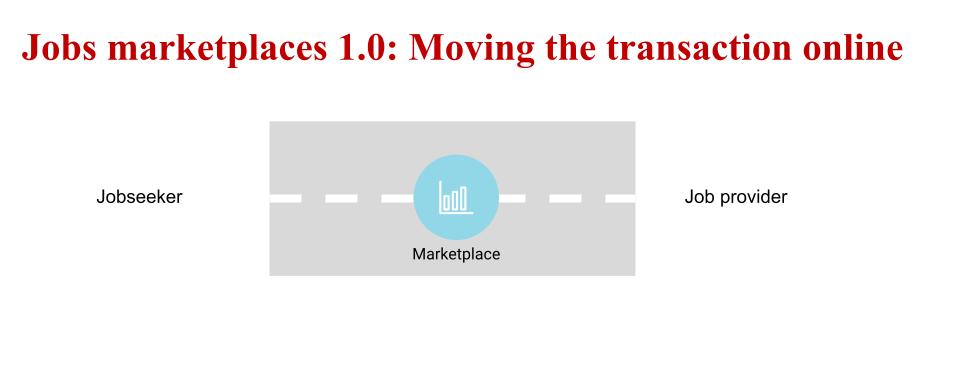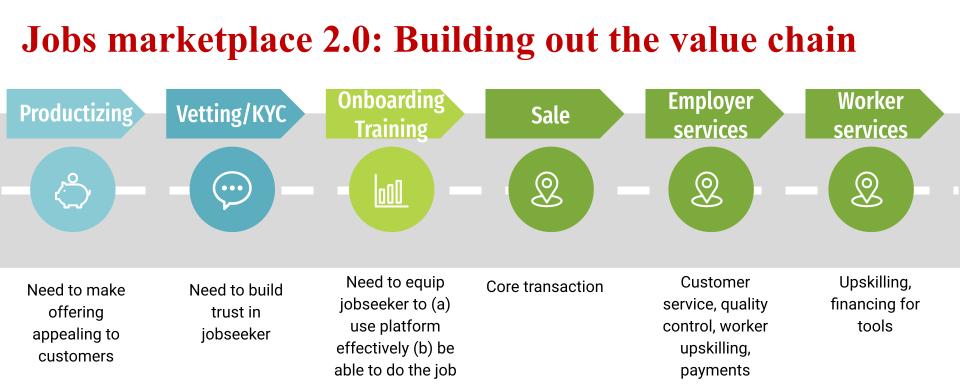By Chris Maclay
I was recently listening to African Tech Roundup’s Unajua podcast, where Nigerian analyst and researcher, Derin Adebayo, did a fantastic job of simply breaking down the evolution of African e-commerce and digital marketplaces. In this article, we’ll present his framing, and explain what it might mean for jobtech on the continent.
African Digital Marketplaces 1.0
In the podcast, Derin used the example of entrepreneur Etop Ikpe’s two generations of vehicle marketplaces in South Africa: Cars45 and then Autocheck.
Cars45, as most first generation marketplaces, simply moved an offline transaction online. As Derin says: “You buy a car. You sell a car.” Simple.

Not so simple. Cars45, as many of the first generation of African marketplaces, struggled. Buyers lacked funds to buy cars – financing was needed. But there were few suitable car financers in the market, as it was difficult to finance such an asset without adequate aftersales car. As Derin explained: “If the industry offline has challenges in the value chain, then you can’t just layer a digital product on top of that and expect it to scale.”
African Digital Marketplaces 2.0
Let’s compare Cars45 to Autocheck:

Ikpe’s second iteration recognised the value chain challenges, and sought to build a response to those challenges within the product. “While the goal is to sell a car online, [Ikpe] has to go back and build financing capability, build insurance, and build a network of aftersales support.” The logic behind this is relatively clear:

Jobtech Value Chains
In the jobtech space, the first generation of jobboards and gigmatching platforms tended to take a similar model to Cars45: You post a vacancy. You apply for a job. Simple.

Of course, not so simple. As we’ve covered elsewhere, few African jobtech marketplaces focused on a ‘lead generation’ have developed viable and scalable business models. This is largely because there are many challenges in the value chain: low skills of jobseekers, inability of workers to pass interviews or possess the right tools, lack of trust in employers, among others. As with the used car marketplace, this brings a range of potential areas within the value chain for strengthening:

Why might job- and gigmatching start-ups need to pursue the above? For two reasons:
- They simply cannot run a viable product/services without doing so
- Each of these points in the value chain provide the opportunity for gaining value; they are opportunities to earn revenue beyond the often thin margins for facilitating a match itself.
While jobtech marketplaces may seek to build out their own value chains, some jobtech start-ups may see opportunities in just targeting specific points in the value chain (beyond the core transaction of the sale of a service). In future episodes, we will showcase start-ups doing both of these.
The author is Director of Youth Employment at Mercy Corps. You can read more about their work with jobtech here.

0 Comments